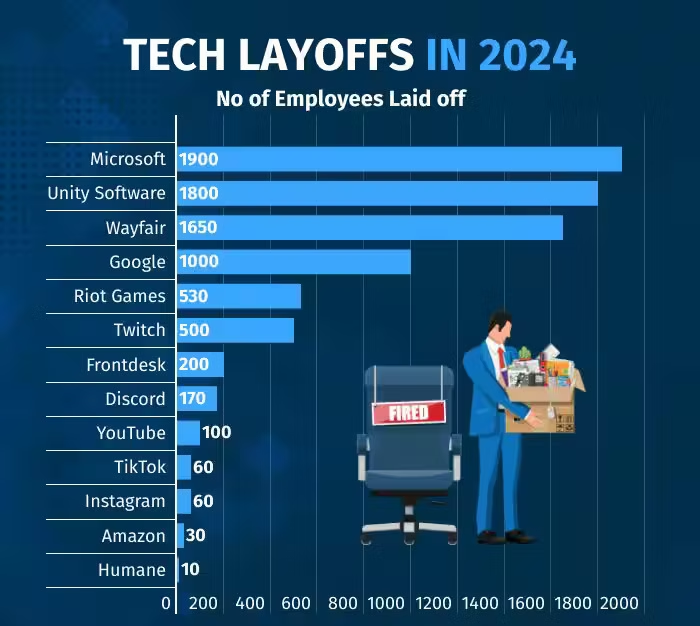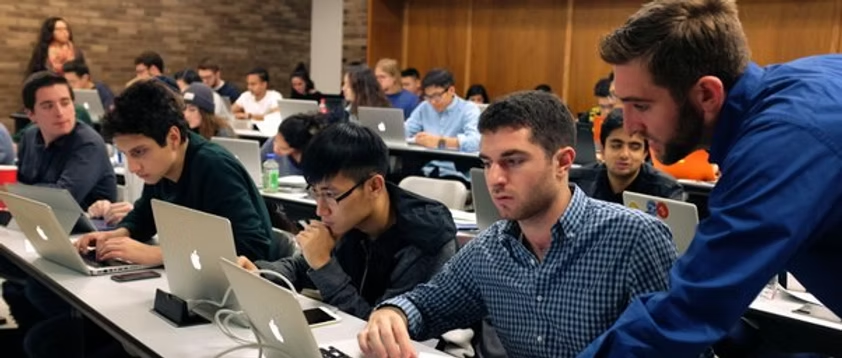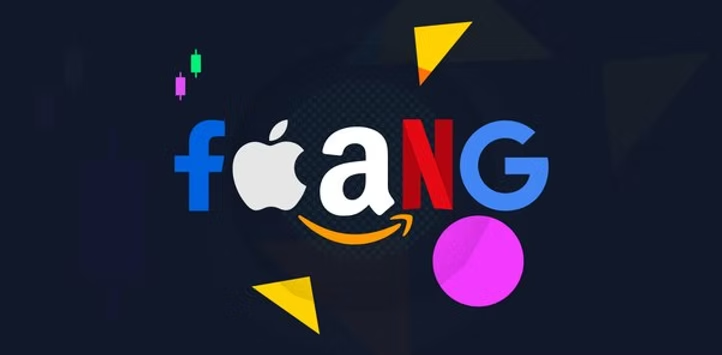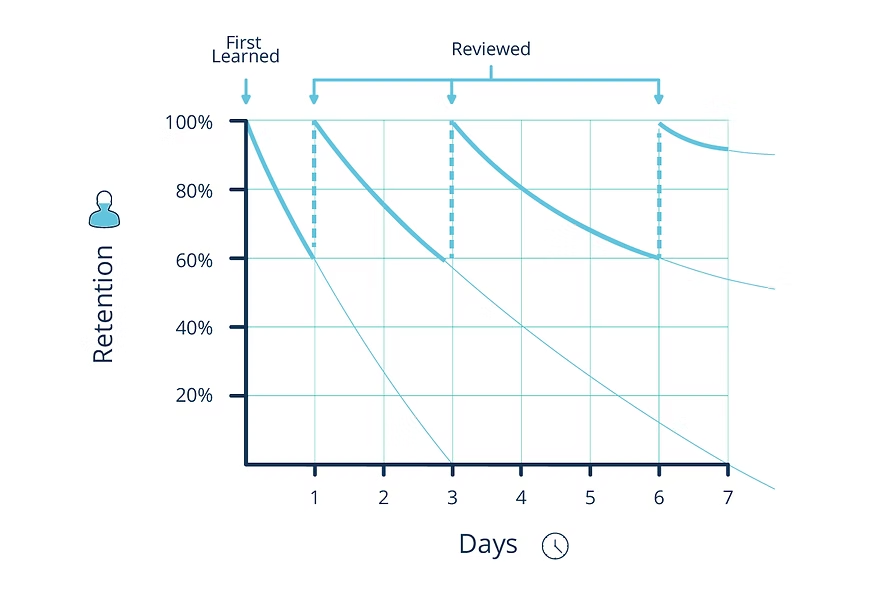1. Introduction
So, you’ve set your sights on landing a job at one of the FAANG companies, Congratulations! These tech giants are known for their rigorous interview processes, which include not only technical assessments but also behavioral interviews. While technical skills are crucial, FAANG companies place a significant emphasis on behavioral interviews to assess your soft skills, cultural fit, and overall potential to thrive in their dynamic environments.
In this comprehensive guide, we’ll dive deep into the world of FAANG behavioral interviews. We’ll explore the most common questions, provide you with a proven framework to structure your answers, and share insider tips to help you stand out. Whether you’re a seasoned software engineer or a recent graduate, this blog will equip you with the tools you need to ace your FAANG behavioral interview.
2. Understanding the FAANG Behavioral Interview
Before we jump into the questions and answers, it’s essential to understand what a behavioral interview is and why FAANG companies value it so highly. Unlike technical interviews that assess your coding skills and problem-solving abilities, behavioral interviews focus on your past experiences and how you’ve handled various situations in your professional life.
FAANG companies are looking for candidates who not only have the technical chops but also possess the soft skills necessary to excel in their fast-paced, collaborative environments. They want to see how you’ve dealt with challenges, worked in teams, led projects, and adapted to change. In short, they’re trying to gauge whether you’ll be a good fit for their company culture.
3. Common FAANG Behavioral Interview Questions
FAANG behavioral interviews typically revolve around a set of core competencies that these companies value. Here are some of the most common categories of questions you might encounter:
-
Leadership: Questions about times when you’ve taken the lead on a project or guided a team.
-
Teamwork: Questions about how you’ve collaborated with others to achieve a common goal.
-
Problem-Solving: Questions about how you’ve tackled complex problems and found solutions.
-
Adaptability: Questions about how you’ve handled change or uncertainty.
-
Conflict Resolution: Questions about how you’ve dealt with disagreements or conflicts in the workplace.
Let’s take a closer look at some specific questions within these categories.
4. The STAR Method: Your Secret Weapon
When it comes to answering behavioral interview questions, the STAR method is your best friend. STAR stands for Situation, Task, Action, and Result. This framework helps you structure your answers in a clear, concise, and compelling way.
-
Situation: Describe the context or background of the situation.
-
Task: Explain the specific challenge or task you were faced with.
-
Action: Detail the actions you took to address the challenge.
-
Result: Share the outcomes of your actions, emphasizing the positive impact.
Using the STAR method ensures that your answers are well-organized and focused, making it easier for the interviewer to follow your thought process and understand your contributions.
5. Top FAANG Behavioral Questions and How to Answer Them
FAANG behavioral interviews often focus on specific competencies like leadership, teamwork, problem-solving, and adaptability. Below are 10 commonly asked questions, along with detailed answers and tips to help you craft your own responses.
Question 1: Tell me about a time when you faced a significant challenge at work. How did you handle it?
Why it’s asked: This question assesses your problem-solving skills, resilience, and ability to handle pressure.
Sample Answer (STAR Method):
-
Situation: “In my previous role as a software engineer, our team was tasked with delivering a critical feature for a client within a tight deadline.”
-
Task: “The challenge was that we discovered a major bug in the codebase just two days before the deadline.”
-
Action: “I took the lead in debugging the issue, coordinating with the team to identify the root cause, and implementing a fix. I also communicated proactively with the client to manage their expectations.”
-
Result: “We successfully resolved the bug and delivered the feature on time. The client was impressed with our responsiveness and professionalism, which strengthened our relationship.”
Tip: Focus on how you remained calm under pressure and took initiative to solve the problem.
Question 2: Describe a situation where you had to work with a difficult team member. How did you handle it?
Why it’s asked: This question evaluates your conflict resolution and interpersonal skills.
Sample Answer (STAR Method):
-
Situation: “During a project at my last job, I worked with a team member who was consistently missing deadlines.”
-
Task: “This was causing delays in our project timeline and putting additional pressure on the rest of the team.”
-
Action: “I scheduled a one-on-one meeting with the team member to understand the root cause of the issue. It turned out they were struggling with some personal challenges. We worked together to adjust their workload and set more realistic deadlines.”
-
Result: “The team member’s performance improved significantly, and we were able to get the project back on track. This experience taught me the importance of empathy and open communication in resolving conflicts.”
Tip: Emphasize collaboration and understanding rather than blaming the other person.
Question 3: Give an example of a time when you took initiative on a project.
Why it’s asked: This question assesses your leadership and proactiveness.
Sample Answer (STAR Method):
-
Situation: “During my internship at a tech startup, I noticed that the team was manually testing every code deployment, which was time-consuming.”
-
Task: “I realized that automating the testing process could save the team significant time and reduce errors.”
-
Action: “I proposed the idea to my manager and took the lead in researching and implementing a CI/CD pipeline using Jenkins. I also trained the team on how to use the new system.”
-
Result: “The automation reduced testing time by 50%, and the team was able to focus on more strategic tasks. My initiative was recognized by my manager, and I was offered a full-time role.”
Tip: Highlight how your initiative had a measurable impact on the team or project.
Question 4: Tell me about a time when you failed. What did you learn from it?
Why it’s asked: This question evaluates your ability to learn from mistakes and grow.
Sample Answer (STAR Method):
-
Situation: “In my first year as a software engineer, I was tasked with leading a small project to develop a new feature for our app.”
-
Task: “I underestimated the complexity of the project and didn’t allocate enough time for testing.”
-
Action: “When the feature launched, it had several bugs that impacted user experience. I took full responsibility, worked overtime to fix the issues, and implemented a more thorough testing process for future projects.”
-
Result: “The feature was eventually stabilized, and I learned the importance of proper planning and risk assessment. This experience made me a more detail-oriented and proactive engineer.”
Tip: Focus on the lessons learned and how you improved as a result of the failure.
Question 5: Describe a time when you had to adapt to a significant change at work.
Why it’s asked: This question assesses your adaptability and ability to thrive in dynamic environments.
Sample Answer (STAR Method):
-
Situation: “At my previous job, our company decided to switch from a monolithic architecture to microservices.”
-
Task: “This was a major shift, and the team had limited experience with microservices.”
-
Action: “I took the initiative to learn about microservices architecture by attending workshops and online courses. I also shared my knowledge with the team and helped them transition smoothly.”
-
Result: “The transition was successful, and our team became more efficient in deploying and scaling applications. I was praised for my adaptability and willingness to learn.”
Tip: Showcase your willingness to embrace change and learn new skills.
Question 6: Tell me about a time when you had to persuade a team to adopt your idea.
Why it’s asked: This question evaluates your communication and influence skills.
Sample Answer (STAR Method):
-
Situation: “During a team meeting, I proposed implementing a new code review process to improve code quality.”
-
Task: “Some team members were resistant because they felt it would slow down development.”
-
Action: “I presented data from other teams that had successfully implemented the process, showing how it reduced bugs and improved collaboration. I also offered to pilot the process on a small project.”
-
Result: “After the pilot, the team saw the benefits and agreed to adopt the new process. Code quality improved, and the team became more collaborative.”
Tip: Use data and evidence to support your argument and show how you addressed concerns.
Question 7: Describe a time when you had to handle multiple priorities. How did you manage them?
Why it’s asked: This question assesses your time management and organizational skills.
Sample Answer (STAR Method):
-
Situation: “In my previous role, I was simultaneously working on two high-priority projects with overlapping deadlines.”
-
Task: “I needed to ensure both projects were completed on time without compromising quality.”
-
Action: “I created a detailed schedule, breaking down tasks into smaller milestones. I also communicated regularly with both project managers to manage expectations and prioritize tasks as needed.”
-
Result: “Both projects were delivered on time, and I received positive feedback for my organizational skills and ability to manage competing priorities.”
Tip: Highlight your ability to stay organized and communicate effectively under pressure.
Question 8: Tell me about a time when you went above and beyond for a customer or client.
Why it’s asked: This question evaluates your customer focus and dedication.
Sample Answer (STAR Method):
-
Situation: “A client reported a critical issue with our software just before a major product launch.”
-
Task: “The issue needed to be resolved immediately to avoid delaying the launch.”
-
Action: “I worked late into the night to identify and fix the issue. I also kept the client updated throughout the process to reassure them.”
-
Result: “The issue was resolved, and the launch proceeded as planned. The client was extremely grateful and later wrote a glowing testimonial for our team.”
Tip: Showcase your commitment to delivering exceptional results and maintaining strong client relationships.
Question 9: Describe a time when you had to learn something new quickly.
Why it’s asked: This question assesses your ability to learn and adapt.
Sample Answer (STAR Method):
-
Situation: “My team was assigned to integrate a new machine learning framework into our application, but none of us had prior experience with it.”
-
Task: “I needed to quickly learn the framework and guide the team through the integration.”
-
Action: “I spent a weekend studying the framework’s documentation and building a small prototype. I then shared my learnings with the team and led the integration effort.”
-
Result: “We successfully integrated the framework, and the new feature was well-received by users. My ability to learn quickly was recognized by my manager.”
Tip: Emphasize your resourcefulness and ability to apply new knowledge effectively.
Question 10: Tell me about a time when you had to deal with an unhappy stakeholder.
Why it’s asked: This question evaluates your conflict resolution and communication skills.
Sample Answer (STAR Method):
-
Situation: “A stakeholder was unhappy with the progress of a project I was leading.”
-
Task: “I needed to address their concerns and rebuild their trust.”
-
Action: “I scheduled a meeting to listen to their concerns and explain the challenges we were facing. I also presented a revised timeline with clear milestones and regular updates.”
-
Result: “The stakeholder appreciated the transparency and became more supportive. The project was completed successfully, and the stakeholder praised our team’s professionalism.”
Tip: Focus on how you listened, communicated, and took actionable steps to resolve the issue.
Key Takeaways for Section 5
-
Use the STAR method to structure your answers clearly and concisely.
-
Tailor your responses to highlight the traits FAANG companies value, such as leadership, teamwork, and problem-solving.
-
Practice these questions and answers to build confidence and fluency.
6. Preparing for Your FAANG Behavioral Interview
Preparation is key to acing your FAANG behavioral interview. Here are some steps you can take to ensure you’re ready:
-
Research the Company: Understand the company’s values, culture, and recent projects. This will help you tailor your answers to align with what they’re looking for.
-
Practice with Mock Interviews: Enlist the help of a friend or mentor to conduct mock interviews. Practice answering common questions using the STAR method.
-
Gather Your Experiences: Reflect on your past experiences and identify examples that demonstrate the key traits FAANG companies are looking for. Organize these examples in a way that makes them easy to recall during the interview.
7. Common Mistakes to Avoid
Even the most prepared candidates can make mistakes in their behavioral interviews. Here are some common pitfalls to watch out for:
-
Overgeneralizing Your Answers: Avoid giving vague or generic responses. Be specific about your experiences and the impact you had.
-
Focusing Too Much on the Negative: While it’s important to be honest about challenges, don’t dwell on the negative aspects. Focus on how you overcame obstacles and what you learned.
-
Not Being Specific or Detailed Enough: Provide enough detail to give the interviewer a clear picture of your actions and their outcomes. Avoid giving overly brief or superficial answers.
8. FAANG Behavioral Interview Success Stories
Hearing from others who have successfully navigated FAANG behavioral interviews can be incredibly motivating. Here are a couple of real-life success stories:
Story 1: Tegan’s Journey to Google
Tegan, a software engineer with five years of experience, was determined to land a job at Google. She spent weeks preparing for her behavioral interview, practicing her answers and refining her STAR responses. During the interview, she was asked about a time when she had to lead a team through a difficult project. Tegan shared a detailed example of how she managed a cross-functional team to deliver a complex feature under a tight deadline. Her clear, structured response impressed the interviewers, and she ultimately received an offer from Google.
Story 2: Rajeev’s Experience at Amazon
Rajeev, a recent graduate, was nervous about his behavioral interview at Amazon. He knew that Amazon places a strong emphasis on leadership and customer obsession. To prepare, Rajeev reviewed Amazon’s leadership principles and practiced answering questions that aligned with them. During the interview, he was asked about a time when he went above and beyond to meet a customer’s needs. Rajeev shared a story about how he worked late nights to fix a critical bug that was affecting a major client. His dedication and customer-focused approach resonated with the interviewers, and he was offered a position at Amazon.
9. FAANG Behavioral Interview Tips from Experts
To give you an edge in your FAANG behavioral interview, we’ve gathered some tips from experts in the field:
-
From a FAANG Recruiter: “We’re looking for candidates who can demonstrate a growth mindset. Show us that you’re willing to learn from your experiences and continuously improve.”
-
From a Career Coach: “Practice active listening during your interview. Make sure you fully understand the question before you start answering. It’s okay to take a moment to gather your thoughts.”
-
From a Hiring Manager: “Be authentic. We can tell when candidates are giving rehearsed or insincere answers. Share real examples that genuinely reflect your experiences and values.”
10. FAANG Behavioral Interview Preparation Resources
To further aid your preparation, here are some resources that can help you get ready for your FAANG behavioral interview:
-
Books: “Cracking the Coding Interview” by Gayle Laakmann McDowell (includes a section on behavioral interviews).
-
Websites: Glassdoor, where you can find interview questions and experiences shared by candidates.
-
Courses: InterviewNode’s comprehensive interview preparation courses, which include modules on behavioral interviews.
-
Tools: Platforms like Pramp and Interviewing.io, which offer mock interview practice with real-time feedback.
11. Conclusion
Acing a FAANG behavioral interview is no small feat, but with the right preparation and mindset, you can significantly increase your chances of success. Remember to use the STAR method to structure your answers, tailor your responses to align with the company’s values, and practice, practice, practice.
At InterviewNode, we’re committed to helping you succeed in your interview journey. Whether you’re preparing for a FAANG interview or any other tech role, our resources and expert guidance are here to support you every step of the way.
So, what are you waiting for? Start preparing today, and take the first step toward landing your dream job at a FAANG company!
12. FAQs
Q: How long should my answers be in a FAANG behavioral interview?A: Aim for answers that are about 2-3 minutes long. This gives you enough time to provide detail without overwhelming the interviewer.
Q: What if I don’t have much work experience?A: Even if you’re early in your career, you can draw on experiences from internships, academic projects, or extracurricular activities. The key is to demonstrate the traits FAANG is looking for, regardless of the context.
Q: How important is it to align my answers with the company’s values?A: Very important. FAANG companies have strong cultures and values, and they want to see that you’ll be a good fit. Make sure to research the company’s values and incorporate them into your answers.
Q: Can I use the same examples for different questions?
A: Yes, as long as the examples are relevant to the questions being asked. However, try to have a variety of examples prepared so you can tailor your responses to different types of questions.
Unlock Your Dream Job with Interview Node
Transitioning into Machine Learning takes more than just curiosity, it takes the right guidance. Join our free webinar designed for software engineers who want to learn ML from the ground up, gain real-world skills, and prepare confidently for top-tier ML roles
Tailored for Senior Engineers
Specifically designed for software engineers with 5+ years of experience, we build on your existing skills to fast-track your transition.
Interview-First Curriculum
No fluff. Every topic, project, and mock interview is focused on what gets you hired at top teams in companies like Google, OpenAI, and Meta
Personalized Mentorship & Feedback
Weekly live sessions, 1:1 guidance, and brutally honest mock interviews from industry veterans who've been on both sides of the table.
Outcome-Based Support
We don’t stop at prep. From referrals to resume reviews and strategy, we’re with you till you land the offer and beyond






